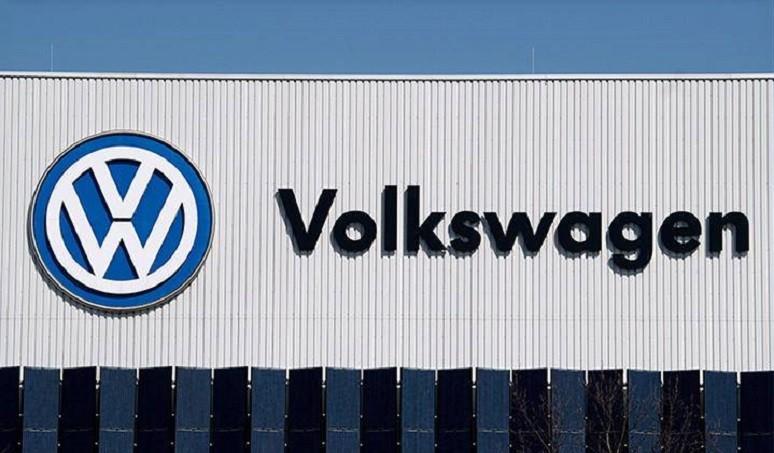
Bmw Group's annual sales in China hit a record high last year, but Volkswagen sales fell by 14.8%, which Volkswagen China President Feng Sihan believes is affected by semiconductor shortages, the new crown epidemic and shutdown measures. Industry insiders pointed out that BMW's procurement process is more flexible than Volkswagen's in response to the impact of the epidemic and chip shortages.
The BMW Group delivered more than 846,000 BMW and MINI vehicles in China in 2021, up 9% from last year. Among them, sales of new energy vehicles surged by 70% to about 48,000 units. The report pointed out that the demand for luxury cars and BMW's push for electric vehicles have made BMW more able to overcome the challenges posed by chip shortages and the new crown epidemic.
By contrast, while Volkswagen Group's Porsche, Bentley and Lamborghini all recorded annual sales in China last year, sales of their major Volkswagen brands fell 14.1 percent. In 2021, Germany's Volkswagen Group China and its joint ventures deliver a total of 3.3 million vehicles in the mainland and Hong Kong markets.
Volkswagen China President Feng Sihan told the media at the beginning of this year that in 2021, the sales of the two brands mainly Volkswagen and Skoda fell sharply; the performance of the high-end brand Audi was acceptable, only down 3.6%, while the sales of Porsche and Bentley even increased by 8% and 43% respectively. Feng pointed out that chip shortages, the new crown epidemic, shutdown measures and a fire at a Japanese supplier eventually led to a reduction of 600,000 vehicles.
On January 13 this year, due to the impact of the new crown epidemic, Volkswagen temporarily closed two plants in Tianjin, of which the FAW-Volkswagen Tianjin plant was officially put into operation in 2018, mainly producing the Audi Q3 and FAW-Volkswagen Tanyue two MQB A2 platform car series, with a design capacity of 300,000 vehicles per year. The Volkswagen Automatic Transmission (Tianjin) plant mainly provides transmission product and service support for Shanghai Volkswagen and FAW-Volkswagen, covering fuel, hybrid and electric, and is at the core of the Volkswagen Group's supply chain. At the beginning of the new year, the temporary closure of the two major factories also cast a haze on Volkswagen's start to 2022.
With the global normalization of the epidemic and China's stricter control of rare metal exports, chip shortages restrict the development speed of global car companies, one of the main problems for Volkswagen is that BMW has a better procurement process, which is why despite the chip crisis, they will still be able to sell 9% more new cars worldwide in 2021. In addition, Volkswagen is also facing the pressure of the initial poor sales of THE ID series of electric vehicles in China, and domestic consumers are more willing to buy cars such as Tesla and BYD than ID models, or buy new power products represented by "Wei Xiaoli".
However, it can also be seen from the relevant data that although 2021 is a very bad year for Volkswagen in China, its Porsche sales in the world and China have increased significantly last year. From this, we can boldly predict that if Volkswagen makes major improvements to the new electric vehicles, there will still be opportunities to catch up this year, and BMW's chip advantage may weaken in the future.
In addition, the different consumption habits of luxury cars and affordable car customers may also be one of the reasons for affecting car sales. High-income consumers have a stronger willingness to consume than low-income people, because high-income people are more financially resistant to risks, coupled with the fact that most of them can work remotely and are less affected, so high-income people are more confident in the future, which will fully stimulate the increase in consumer spending in various categories. For ordinary people with average income, wages are easily affected by the epidemic, so the recovery of future consumption confidence in this part of the population is not as strong as that of high-income people, so they will try their best to tighten consumption, or only increase consumption in necessary categories.
Globally, BMW beat longtime rival Mercedes-Benz for the first time since 2015, delivering 2.21 million vehicles worldwide last year, up 9.1% year-on-year; all-electric vehicle sales doubled to 103,900 units, becoming the champion in luxury car sales. BMW's rival Daimler Group also previously reported that Mercedes-Benz's sales in 2021 fell by 5% to 2.05 million units.
The Volkswagen Group, which has the largest proportion of sales declines, recently said that the Global Delivery Volume of the Volkswagen Group fell by 4.5% to 8.88 million units in 2021, the lowest sales performance in history since 2011. Among them, the Chinese market saw the largest decline (14.8%), but the sales of electric vehicles in China have doubled several times. Sales of hybrid or all-electric vehicles are growing across the automotive industry, especially in Europe, where they even account for a quarter to a fifth of deliveries. Despite this, Volkswagen executives said: "In particularly challenging circumstances, Volkswagen achieved satisfactory sales performance, however, it is still unable to make up for the huge impact of chips on car production." ”